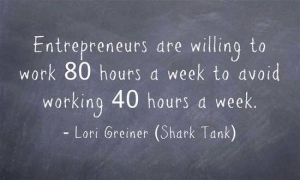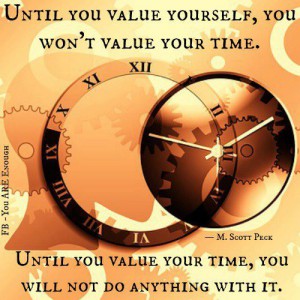 WHY Choose Real Estate as a Profession
WHY Choose Real Estate as a Profession
This is a question that I have asked thousands of real estate professionals over forty years of mentoring agents and brokers, and speaking for associations, conventions, and companies.
The Top 3 Answers Are
- Money: Stated many different ways; such as, “To earn big bucks”, “To learn about real estate so I can invest.” “To buy a house, send my kids to college, and pay off my debts.” And, “So I can achieve financial independence.”
- Freedom: “I want to be my own boss.” “I’m tired of others ordering me around.” “I’m tired of working for the man.”
- Time: “To spend more time with my family doing what I want to do.” “I want to create my own hours.” “I no longer want to work 40 hours a week.” “I need more flexibility to be with my kids.” “I’m retired and want to set my own schedule and play more golf.”
More Money, Freedom, and Time have dominated the dreams and goals of man since the beginning of time. Volumes of books, countless plays and fables, and thousands of years of history have recorded this quest, and still we seek more Money, Freedom, and Time.
Other reasons given:
Here’s one many of you’ve said when you first got into the real estate business –“I love houses and I love people.” I felt that way too when I started, two months later I hated both. We laugh, but real estate is a serious job. It’s not just about houses and people. It takes a lot of work, competence, knowledge, and skills to effectively satisfy the needs of today’s techno savvy, consciously aware consumer.
Once in a blue moon someone will say, “I didn’t choose real estate, real estate chose me.” Usually these folks have been born into the business. Their mother, father, uncle sold real estate or owned a company and they inherited the job. We have many grand real estate families in the US and Canada, and my perception is that this is again on the rise. Allowing a real estate career to set a good example for our children is a goal I made because of my daughter’s (then 12) answer to the question, “Are you going to be in real estate like your father?” “No,” she politely replied, “I want to spend time with my children when I grow up.” That was an eye opener and totally changed the way I approached the business.
Since the number one answer is Money, let’s look at the numbers:
70% of the licensed real estate salespeople in the US make less than $1,000 per month. WHAT? That’s correct, 70% of those in real estate are starving with their frozen children in the dark! WHY? My belief is that 70% of the real estate agents/brokers hang on the wall, right next to their license. “Oh”, you say, “Part Time!” NO! There is no such thing as part time real estate agents/brokers. There are PRODUCTIVE and NON-PRODUCTIVE agents/brokers.
 Only 8 percent of all the licensed associates are closing 80% of the transactions! Therefore 80% of all fees paid go to 8% of the real estate sales force. WHY? Because this represents the dedicated men and women who are working their butts off on a daily basis to collaboratively assist the home buying and selling public. It’s been this way for years and not just in real estate, 10% do 80% of the business.
Only 8 percent of all the licensed associates are closing 80% of the transactions! Therefore 80% of all fees paid go to 8% of the real estate sales force. WHY? Because this represents the dedicated men and women who are working their butts off on a daily basis to collaboratively assist the home buying and selling public. It’s been this way for years and not just in real estate, 10% do 80% of the business.
What about the other 22%? They make a living. Most are quite comfortable with this, others, pine in the disbelief that they are not closing lots of deals and making big bucks. (Hence Rossi’s class Winners/Whiners/Wieners.)
Why, if money is the reason real estate is chosen as a career, do so few make it? My conclusion is that money may be a reason but it’s not the motivator.
Ask yourself, “Am I earning maximum dollars in proportion to the time invested in real estate?” That is to ask, “After expenses, how much do you make an hour?” Tommy Hopkins asked this question from the podium in one of his seminars in the early 70’s. I immediately went to work to generate an answer. After more research hours than I care to admit, the answer was a tad under minimum wage and I was a multi-million dollar producer! Once again, I went through a re-evaluation of my career.
It’s sad how many feel that real estate is a money panacea. It’s believed that once licensed, the money will pour in. After a year, the realization of how untrue that is begins to sink in. We think that real estate will at least change our lives, also an untruth. You built a lifetime of habits before real estate. You have established, by habit, how much money you need to survive. That’s what you continue to do to satisfy your current comfort level.
In his book, Rich Dad, Poor Dad, a must read, Robert T. Kiyosaki talks about how building equities in real estate can make one wealthy. Many of us got into the business to learn how to invest in real estate and then never bought a single investment property. We have a million excuses and ‘if I’da’ stories.  We gladly find investments for others then sit on our dwindling assets, frozen in complacency, only to P&M (piss and moan) about how we should’a, could’a, would’a.
We gladly find investments for others then sit on our dwindling assets, frozen in complacency, only to P&M (piss and moan) about how we should’a, could’a, would’a.
Freedom, “Be my own boss”
The good news about real estate is that you are your own boss. The bad news is, you are your own boss! Therein lies the dichotomy. Many of us came from professions where it was someone else’s job to keep us busy. We had a job description that told us what to do (at least in general) eight hours a day, five days a week. Now with the freedom to do what we choose, we find ways to keep busy but not productive. Even multi-million dollar producers tell me they spend too much time doing nothing. People, in general, can’t manage themselves. Companies often take strong producers and make them managers only to discover that just because someone is good at something doesn’t mean they can manage someone else to do the same job.
I have taught hundreds of classes on how to manage a real estate career only to be disappointed by returning a year later to find that my students are still in the same old work habits with no advancement in their success. Other educators, trainers, and coaches tell me they have experienced the same thing. I have found that I can daily push, shove, motivate, cajole, and remind students and they still implement nothing but good intentions. Hence the reason that in the last twelve months, real estate professionals have signed up for expensive ‘personal coaches’ in record numbers making Fortune Magazine’s prediction, “Training and personal coaching will become a major industry in the beginning of the next century” a reality.

TIME
Time is the third choice for choosing real estate, but it’s not ‘time management’, it’s ‘choice management’, the power to choose what you do within the time you are given. Choice Management affects relationships, money, home, office, technology, and play (personal time and vacation). The choices we make on a daily basis are the main stressors in our lives. For instance, if you choose to take an overpriced listing, you know that you’ll have unhappy sellers calling constantly complaining, “My house isn’t being shown,” “Where are the offers?” and “What are you doing to get it sold?”! Instead, if you had made the decision not to take overpriced listings, your stress would be diminished. It’s your choice.
The quest for happiness, wellness, and quality of life is about choices. Choice Management, the right choice to keep life moving forward in a healthy and fulfilling manner. When one is committed to, and sticks with, positive choices, stress can be diminished. One can be secure in the knowledge that the very nature of our existence improves proportionately to the number of good choices we make. Be confident that, like a savings account, the small efforts made to treat the body and soul with respect accumulate and result in improved quality of life. A personal strategic plan maps out the direction and means to achieve these choices by which it blossoms into a business and life plan.
Creating your own personal strategic plan entails an honest, contemplative examination of yourself.
First, you must prioritize your values.
Second, set out what you want to accomplish.
Third, prioritize these desires.
Fourth, 5 sense (see, hear, touch, smell and taste) the outcome in writing.
Fifth, create the strategies necessary to accomplish each outcome and prioritize them.
Sixth, define and prioritize all the tasks required to accomplish each strategy.
Seventh, review to insure the above is congruent with your values.
And Eighth, place them into your subconscious by reviewing and working your plan every day.
Money, Freedom, and Time are yours to enjoy if you simply create a plan for them. Real estate professionals don’t ‘plan to fail’, they ‘fail to plan’.
On top of speaking all over the globe Rossi sells real estate in Raleigh, NC with his wife and partner, “The Bishop”. The work with Northside Realty.

